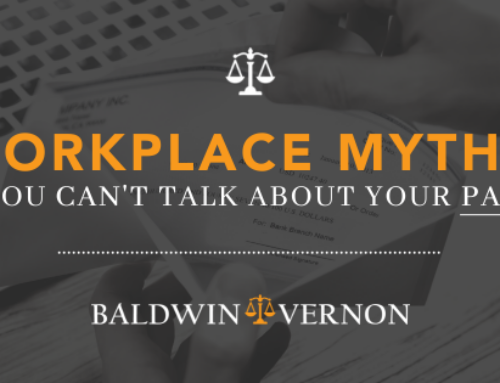A guide to understanding your rights when pulled over by the police
When law enforcement pulls you over, you do have rights as a US Citizen — knowing and understanding them can help your case and even prevent you from being detained. Ahead, learn what they are and how to protect yourself.
- 4th Amendment: Your right to refuse to consent to a search request
- 5th Amendment: Your right to “remain silent,” or protect yourself from self-incrimination
- Your right to see an attorney — before a bail bondsman
- Passengers have the same rights as drivers
Your rights during a traffic stop
If you’re pulled over for a minor traffic violation, things can still quickly get confusing. First, you do want to comply when they flag you: pull over, turn off your car, and place and keep your hands on the wheel where the officer can see them clearly. Once they request your license, registration, and proof of insurance you can reach for it, but not before — it’s for police officers’ own safety that they like to see your hands. If it’s nighttime, turn on your interior lights so they can clearly see you’re not armed. Greet them politely, and if they give you a ticket, accept it calmly.
You have two key rights when you get pulled over for a traffic stop: your 5th Amendment right to protect yourself from self-incrimination and your 4th Amendment right to refuse a search request.
Your 5th Amendment Right
These rights don’t stop police officers from trying to get you to admit any law breaking you might have done. For example, they are well within their own rights to ask you, “Do you know how fast you were going?” Officers also often get hunches that criminal activity is afoot, and use small talk and innocent-seeming questioning as a fishing expedition to develop probable cause to search or further detain you. You are not required to answer the officers’ questions or engage them in their small talk. If they ask you where you are going, or where you are coming from, you can politely decline to answer.
The 5th Amendment is your right to remain silent, because anything you say can and will used against you in a court case. You don’t have to say anything beyond, “I am going to remain silent” at all.
Your 4th Amendment Right
The 4th Amendment is your right to protection in “your persons, houses, papers, and effects.” This applies to your vehicle. An officer can only search your car if you either provide them with consent or if they have probably cause to suspect criminal activity. This also applies to your phone — if you don’t provide your consent to an officer to search your phone, they legally cannot access its locked content.
Let’s say the officer has found reason to be suspicious — they may require you to step out of your car, including any passengers you have with you. They may detain you and they may frisk you. At this point, you have the right to verbally refuse to consent to their search by saying, “I do not consent to this search, but I am not resisting.” It’s vitally important that you only verbally refuse however — even simply touching the officer could result in a charge for assaulting a police officer.
The officer may also ask you some questions if they have reason to be suspicious of anything. They may sound like orders — for example, “You don’t mind if I take a look inside your vehicle?” Questions like these are loopholes: they are requests, as the officer is not allowed to search your car without a warrant or your consent. So if you are asked this question, your response should be polite but firm: “Officer, I respect that you’re doing your job, but I do not consent to a search of my car.” If they keep asking you follow-up questions, you don’t need to answer those questions either — simply keep repeating your refusal to consent.
When you refuse to consent to searches, it doesn’t mean you are admitting to anything and it also doesn’t give the officer any legal right to search or further detain you. If they search your car anyway, despite your refusal to consent, your legal representation can then file a motion to either suppress or throw out that evidence entirely. Many times, if this is the only piece of evidence in the case, your charges will be dismissed because the evidence was not legally obtained.
Ask if you are free to go
Before driving away, clarify if you are free to go by asking the police officer. This is also a simple way to politely deflect any attempts to question or intimidate you. Ask, “Are you detaining me or am I free to go?” and keep persisting until the answer is clear. If they reply that you are free to leave, leave immediately.
If they do not and you are being detained, your reply should be, “I am going to remain silent and I would like to see a lawyer.” You can repeat those words as often as need be, but know that you do have the right to refuse to provide any information — and you definitely have the right to legal representation. The only thing you have to do is provide them with your name.
One more thing to remember if you are detained and charges are filed: call a lawyer before calling a bail bondsman. Your lawyer can help you assess your situation, handle any bond, and avoid extra costs.
Passengers have rights as well
The rights to remain silent and refuse to consent to search requests apply to any passengers as well. Often times, if the entire party is asked to step out of the car, police will separate passengers to question them — any differing answers could give the police probable cause, which is what they need to establish in order to continue to detain you or to search your vehicle or person.
Passengers should respond the same as drivers — politely but firmly refuse to consent to searches and ask if you are being detained or if you are free to go.
If the officer mentions marijuana
It’s been established by the courts that the smell of marijuana or other contraband is probable cause to conduct a search. However, officers may mention marijuana to gauge your reaction. The best way to respond in this situation is to give your line about refusing to consent to a search. If they do smell marijuana, search, and find something — or see something “in plain view,” then remember your right to remain silent and to see a lawyer.







